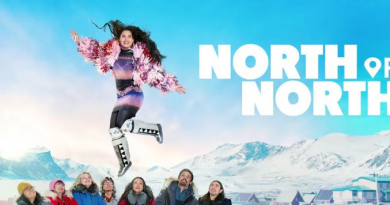Changed by pandemic, Iditarod 2021 gets underway
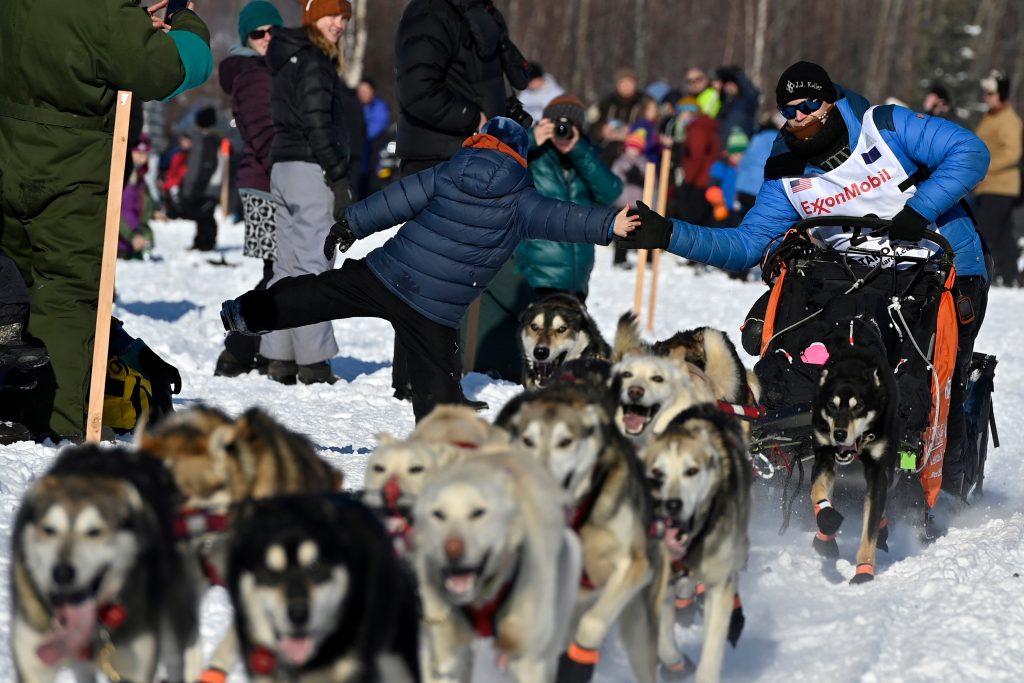
It was an Iditarod start like no other, to kick off a race drastically changed for coronavirus times.
When mushers first arrived at Deshka Landing, near Willow, on Sunday they got swabbed for COVID-19.
“And they didn’t want you to be milling about until you’d gotten the results,” said Two Rivers musher Ryne Olson, who waited in her dog truck until she learned of her negative result.
“Passed another test!” she said. “We’ve got one more in McGrath, and then we should be all clear.”
Olson is among the 46 mushers and hundreds of sled dogs who left the Iditarod starting line at the Deshka Landing boat launch on a sunny and clear afternoon.
Many mushers, Olson included, described the hours leading up to the start as calmer than normal.
“It’s definitely more relaxed. There’s not nearly as many spectators. The sun is beaming down,” said Olson, she wore a face mask and sat on the back of her sled. “It doesn’t feel like winter.”
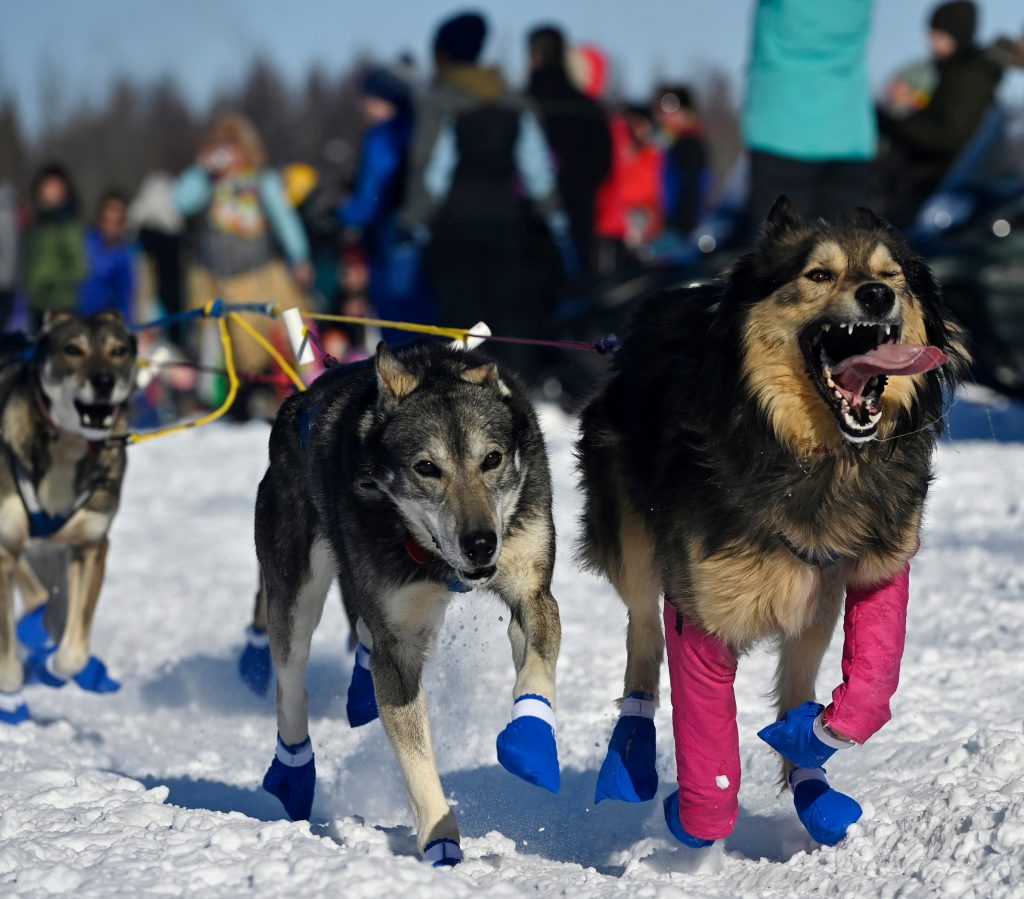
Race officials put tight restrictions on who could be near the starting line on Sunday, as part of their COVID-19 mitigation plan, leading to a much smaller crowd.
“There’s only maybe 300 people here versus, say, 6,000 there might be other years,” said Iditarod chief executive Rob Urbach.
Canadian musher Aaron Peck said he felt thankful that there was a 2021 Iditarod.
“I think everyone is expressing gratitude for the fact that there’s even a race,” he said, as he organized his sled bag. “People need this.”
As for musher Cindy Gallea, from Minnesota, she was happy she made it to the starting line.
Not too long ago, it seemed like she might not.
Gallea had planned to drive her sled-dog team to Alaska, but got turned away at the Canadian border because of COVID-19 restrictions.
Then, her community rallied to help pay to fly the team to Anchorage, and they just landed on Wednesday.
“It was quite a touching experience to have all that help,” she said.
“It was a little exhausting, I’m a little tired now, but hopefully I’ll settle into a rhythm.”
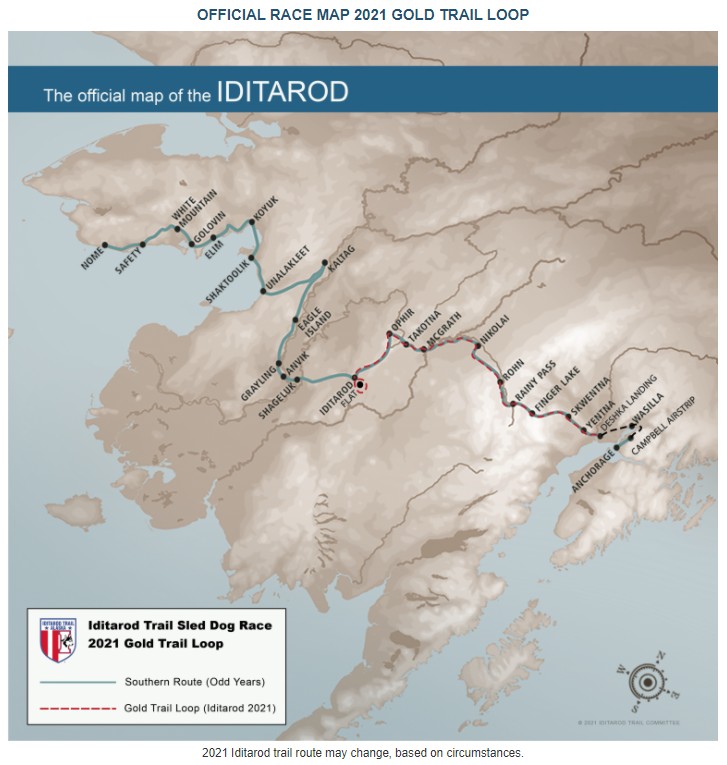
Aside from the race start, the rest of the Iditarod will also look very different: For the first time, teams are not headed to Nome.
This year, they’re traveling on an 850-mile trail out to the ghost town of Flat and back to Deshka Landing. They’ll mostly stay in tents along the way, instead of the usual stops in village schools or community buildings.
Willow musher Wade Marrs said that prompted him to pack a sleeping pad this year — though it didn’t fit very well in his crowded sled bag.
“It’s kind of inconvenient. It’s right in the way,” he said. “Maybe I’ll end up sending it back.”
While this year’s Iditarod will bring many new challenges, Marrs said, he’s also ready for the typical, annual challenges like sleep deprivation.
Marrs has a three-month-old son at home, so he has recent practice running on little sleep.
“I’m just hoping I don’t oversleep during the race, waiting for the baby to cry,” he said, laughing.
Bethel musher Pete Kaiser, the 2019 Iditarod champion, was eating a Subway sandwich near his dog team Sunday afternoon.
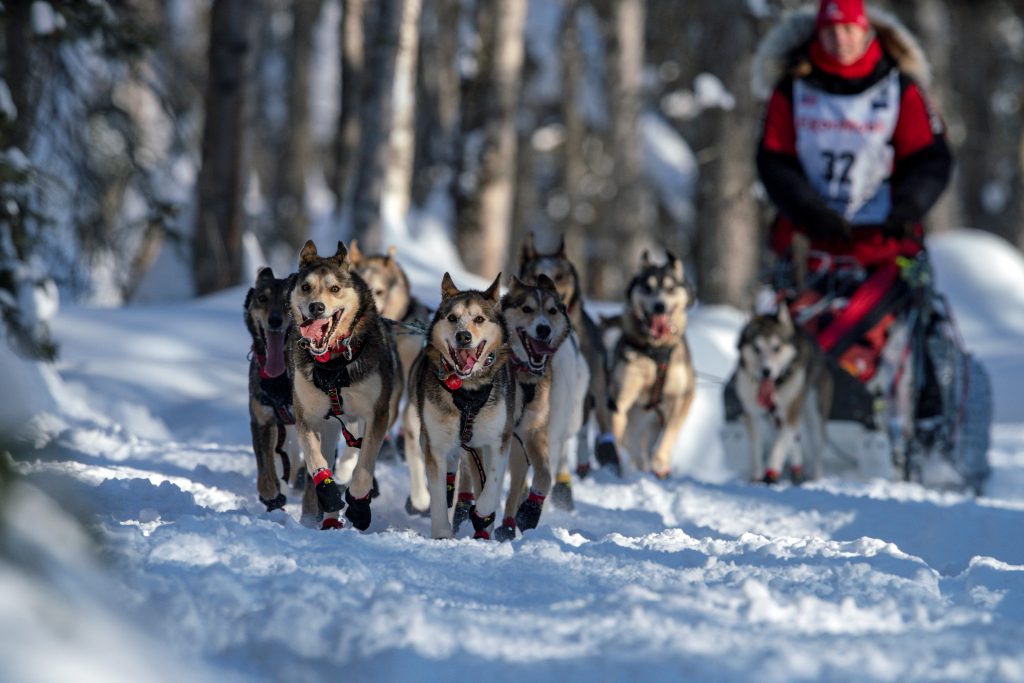
Even though it’s a smaller number of teams competing in the race this year, he said, it’s just as competitive as ever.
“Anybody who wins this race is not going to win it easily,” he said.
Kaiser was the second musher to leave the starting line on Sunday, after Peck.
Iditarod volunteers as well as mushers’ family and dog handlers made up most of the crowd at the starting line.
And then, just beyond it, a couple hundred people rode their snowmachines out to cheer on the teams.
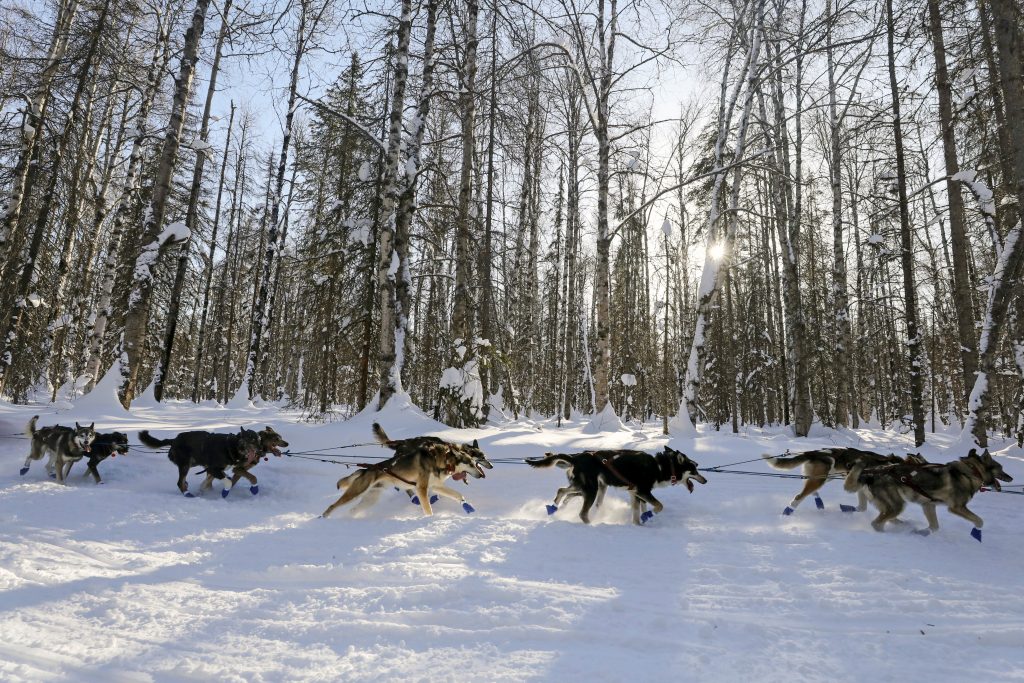
Some set up a makeshift bar. Some held signs. A few had megaphones, including Cindy Hite, a local business owner.
“It’s beautiful weather, great friends, I closed my business down a little early, and we came out to have a good ol’ time for a few hours,” she said.
By late Sunday night, Girdwood musher Nicolas Petit was leading the pack of 46 teams, as he and his 14 dogs dashed toward Finger Lake, at race mile 123.
(The race field shrank from 47 teams to 46 early Sunday after rookie musher Sean Williams dropped out due to a family health concern, race officials announced.)
Related stories from around the North:
Canada: Alaska politicians send Trudeau letter saying they’re “shocked” over Canada’s COVID-19 cruise ship ban, Eye on the Arctic
Finland: Jobless huskies in Arctic Finland travelling south for work as COVID-19 puts breaks on winter season, Yle News
Denmark/Greenland: Greenland authorities buoyed by high demand for COVID-19 vaccine, Eye on the Arctic
Iceland: Iceland institutes new COVID-19 border measures, Eye on the Arctic
Norway: Dogsled race in arctic Norway cancelled over COVID-19 fears, The Independent Barents Observer
Russia: Norway closes borders over fears of virus, but exempts Russian fishermen from severely infected border region, The Independent Barents Observer
Sweden: Swedes caught in Norway border limbo, Radio Sweden
United States: Negative COVID-19 test no longer required to enter Alaska, The Associated Press

